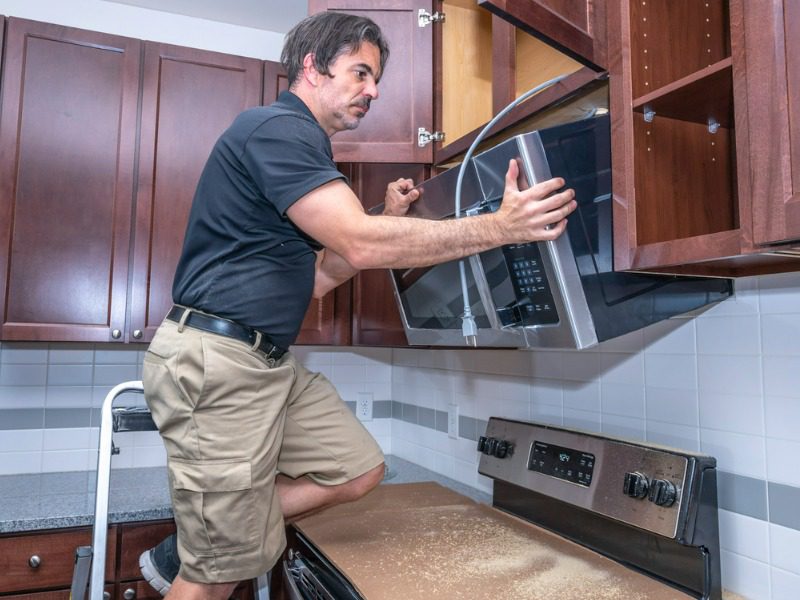Why B.C. tribunal dismissed a home warranty case

A homeowner saw his $5,000 warranty claim for alleged defects in his home dismissed by a British Columbia Civil Resolution Tribunal (Suzuki v. Travelers Insurance Company of Canada La Compagnie D’Assurance Travelers Du Canada, 2024 BCCRT 586).
Applicant Toshio Suzuki co-owns a home covered by a home warranty certificate issued by Travelers Insurance Company of Canada. He claimed six alleged defects:
A hood above the over-the-range microwave was ineffective, causing the smoke alarm to trigger frequently
The microwave was installed too high, making it unsafe to use
Kitchen cabinets were installed too high and inaccessible without a stepladder
The microwave was not installed according to manufacturer instructions, which in turn meant the kitchen cabinets were installed incorrectly
The microwave hood fan was not approved by the manufacturer to be paired with the gas cooktop
The length of the exhaust vent system may exceed the maximum size permitted by the manufacturer.
Issues related to the cabinet heights were later withdrawn.
Tribunal’s response
The tribunal noted the warranty covers defects in materials and labour supplied by the home’s builder for up to two years, and that the claim was submitted on time. It also indicated defects are defined as “any design or construction that is contrary to the Building Code or that requires repair or replacement due to the negligence of a builder or person for whom the builder is responsible at law.”
It further said Suzuki’s allegations about the microwave’s installation address those instructions precisely, and not building code compliance. The tribunal noted Suzuki provided a document from the microwave’s manufacturer as evidence and indicated it was a warranty inspection invoice. But the invoice described the charges simply as ‘labour’ with comments saying “Found wrong installation – from top microwave to cooktop 41.5” (instead 33”). Plus, the microwave covered only rear burners.”
The insurer alleged the invoice was not expert evidence because it didn’t specify who performed the inspection, their credentials, or what they reviewed. Tribunal member Alison Wake added, “The invoice also does not say that the microwave’s warranty is void, as Mr. Suzuki argues. I find this invoice falls short of proving that the builder negligently installed the microwave.”
Other evidence provided likewise did not indicate failure to follow the manufacturer’s instructions. For example, while the installation height may have been inconvenient, the manufacturer’s instructions do not specify a maximum height. And the tribunal determined presented evidence the vent hood used in the installation wasn’t on a list of approved units for pairing with the specific cooktop is inconclusive, since the list may not have been exhaustive.
“I find Mr. Suzuki has not established that the builder negligently installed the microwave. So, I find he has not proven that the microwave’s installation is a ‘defect’ under the warranty,” Wake wrote.
Claim handling
Suzuki further alleged Travelers “acted in bad faith and breached the terms of its warranty as well as applicable legislation, guidelines, and procedures in dealing with his claim.”
He argued Travelers did not inspect the alleged defects in person. While Travelers acknowledged its warranty certificate requires it to make reasonable attempts to contact an owner to arrange a claim evaluation, it said an in-person inspection may not be required.
“I find the warranty certificate does not specify that Travelers must perform a physical inspection of the warranty claim,” Wake wrote, “and I accept Travelers’ submission one was not required in these circumstances, as Mr. Suzuki’s claim included detailed measurements.”
Suzuki also argued Travelers’ grouping the six claims into one labelled ‘Kitchen’ breached its claims handling process, “which says that all defects listed on the notice of claim will be itemized on the record of claim.” The tribunal determined Travelers did a reasonable job of evaluating the claim.
“I find Mr. Suzuki has not proven that Travelers breached its warranty agreement. So, I dismiss his claims,” wrote Wake.
Feature image courtesy of iStock/spates



